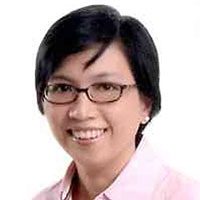SUMMARY
This is AI generated summarization, which may have errors. For context, always refer to the full article.

The judge stated: “On behalf of the country, I would like to express deep sorrow to the accused. The current country was possible because of your sacrifice for justice. I worry about retrogression of our democracy. Please continue your efforts for the just society as you did in the past.” (Translated by Geo-Sung Kim).
The words of the Korean judge represent the new face of government and what we should expect from government. It is a government that is unafraid to admit a mistake, to apologize and to rectify.
This new paradigm of government and governance is something many of us would like to see in the Philippines. And we are not alone. The global civil society, in solidarity with local organizations, wants to see this alternative paradigm successfully institutionalized.
In the Open Government Partnership (OGP) Asia Pacific Regional Conference held in Bali on May 4-7, Rakesh Rajani, who heads a Tanzanian civil society organization called Twaweza (Swahili for “we can make it happen”), spoke in his opening remarks about the evolving role of government in society.
“An open government is a listening government. It is genuinely interested in people’s thinking. It wants to know the concerns, needs and priorities of the people, so that the government can respond. What matters more to people? Is it access to water, or is it the quality of the roads? Or is it the bad treatment they receive at the hands of the medical staff, or the fear they experience from the police?”
“A listening government asks for ideas from ordinary people and civil society. Imagine, for a moment, the power of that. Imagine what it does for the relationship between the state and the people, what it does to public trust.”
“An open government informs and educates. It understands that it needs to explain to the public what is going on in the country, what the government is doing, and the basis of its policy and budget choices. When it is thoughtfully explaining the nature of trade-offs – such as why certain services can be free, and others not, or why hard decisions are being made – it both invites and informs public debates on those choices.”
Philippines: Still a long way
The OGP was launched in 2011 with a commitment from governments that they will be open and responsive. This emerging concept is about transparency, participation and accountability. The grand vision includes: improving public services, increasing public integrity, effective management of resources, safer communities and increasing accountability.
The OGP has grown from 8 to 64 participating countries in 3 years. The eligibility criteria are: minimum standards for access to information, fiscal transparency, asset disclosure and civil liberties.
Even as it is a founding OGP country, the Philippines is a long way off from realizing the vision and meeting the challenges of a truly open government.
While some strides have been made with open data, the country needs a strong platform that ensures the right to access information. Only through this will we have an empowered citizenry that is informed, that can suggest and critique policies.
Open data is useful. Access to information is powerful. Access to information promotes transparency, active participation and accountability. Citizens will have access to useful and comprehensive information that can bring about creative and collaborative solutions and suggestions to pressing social problems.
The new face of government and governance should not hesitate or fear in pursuing the right to know of people. As Aruna Roy succinctly put it, “we have to talk truth to power, make truth powerful and power truthful.”
I am hopeful that in the Philippines, our leaders are aware that there is a new paradigm for government and governance that is gaining momentum globally. I am hopeful that when Undersecretary Abigail Valte said that by, “marrying FOI and Open Data, we want to bridge the supply and the demand side of access to information,” our government is on the path to becoming a truly Open Government. – Rappler.com
Cleo Calimbahin is the executive director of Transparency International-Philippines. She received her Ph.D. in Political Science from the University of Wisconsin-Madison as a Fulbright Fellow and an M.Sc. in International Politics of Asia and Africa from the School of Oriental and African Studies (SOAS), University of London. Dr. Calimbahin taught at the Department of Political Science, De La Salle University-Manila as an Associate Professor, was a Visiting Scholar and Research Fellow in Geneva, Japan, Washington D.C., and is an Affiliate Scholar of the Center for Southeast Asian Studies-Indonesia.
Add a comment
How does this make you feel?





There are no comments yet. Add your comment to start the conversation.